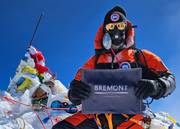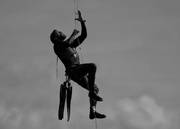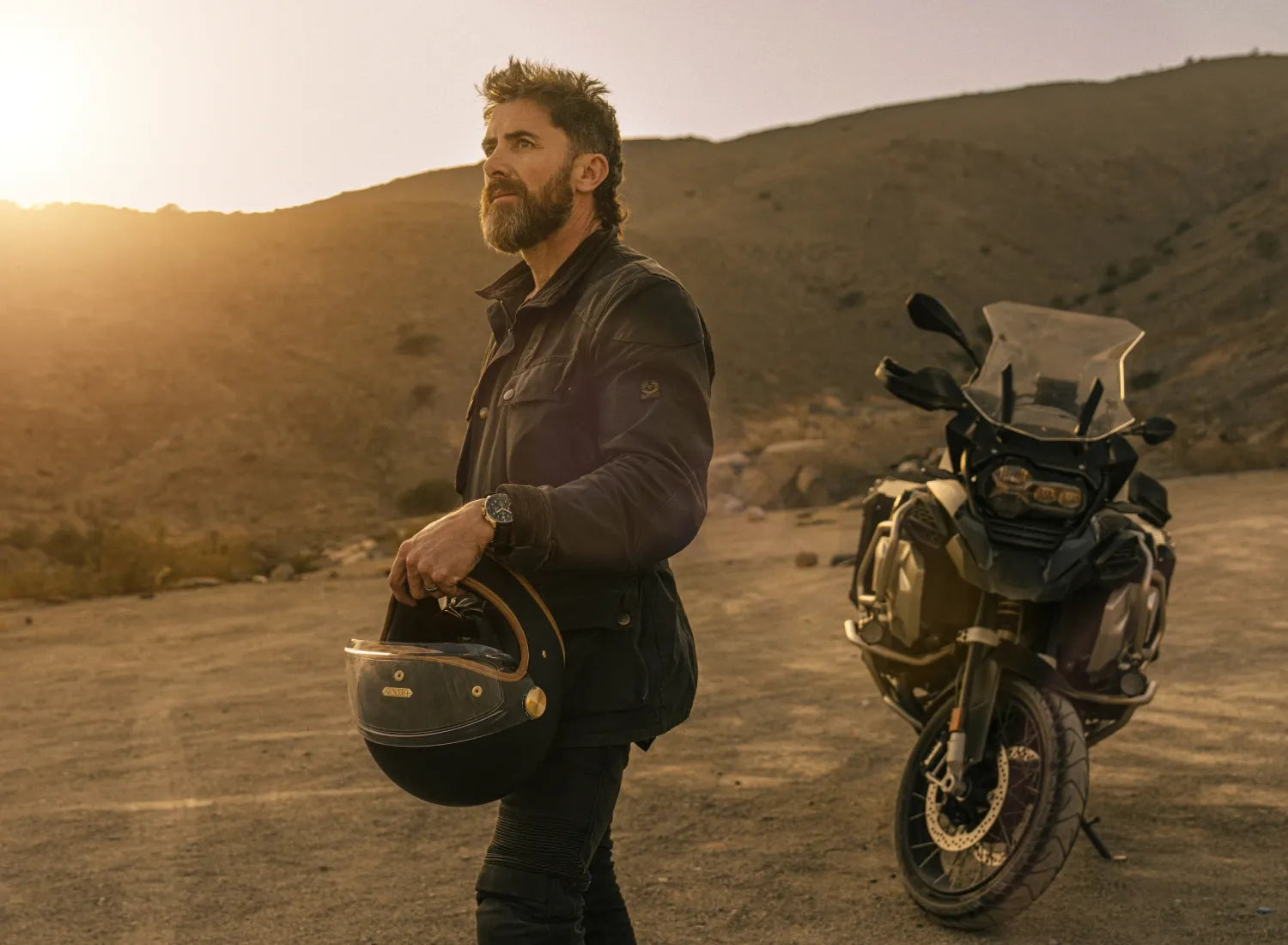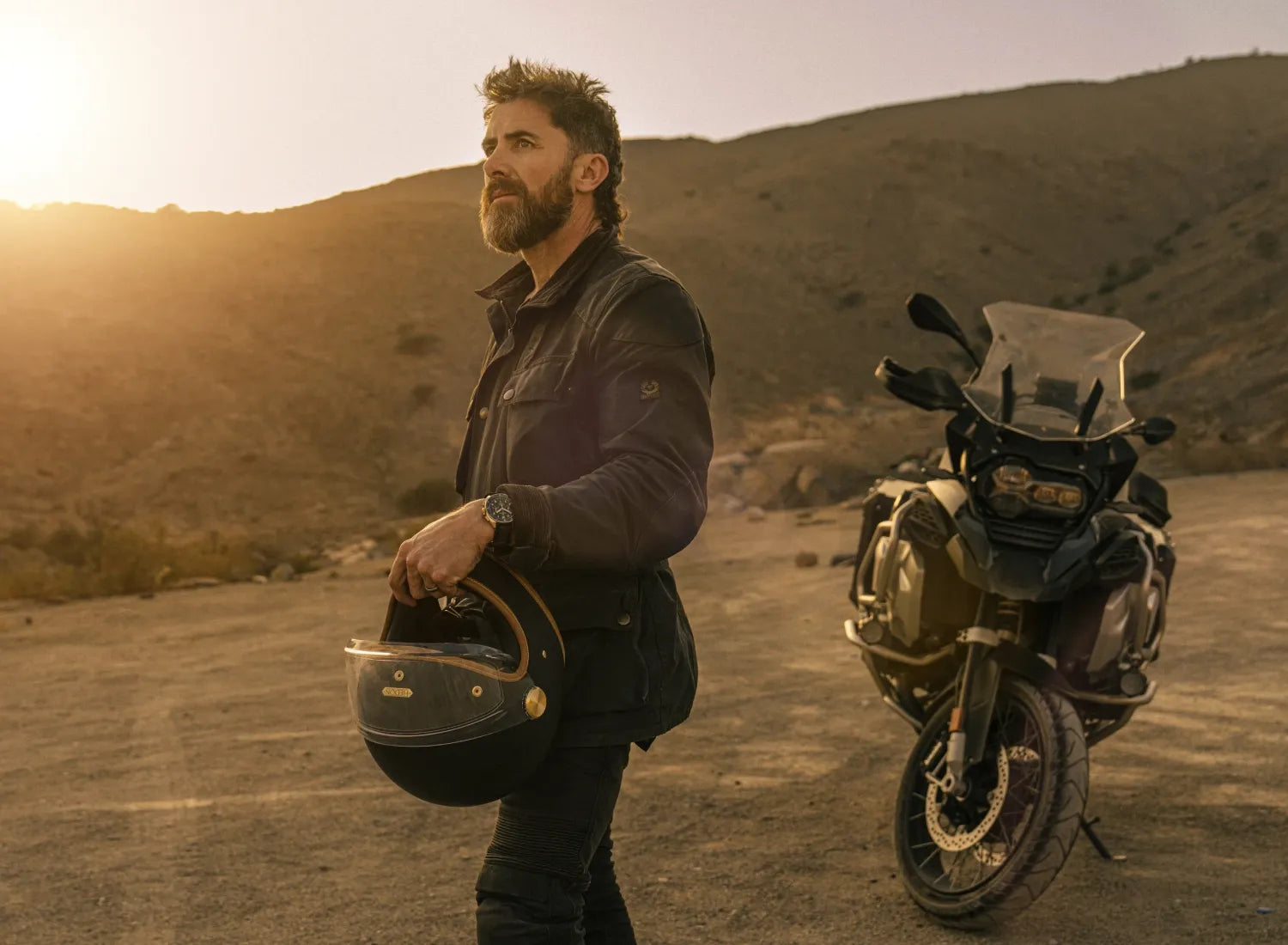Inside the mind of record-breaking adventurer and hostile environments expert, Aldo Kane.
Aldo, can you share a pivotal moment from your adventures that tested your limits and truly defined your spirit as an adventurer?
I would say rowing across the Atlantic definitely tested my limits and it was also defining in that we had no support or back up and it did truly feel like an adventure.
Many people dream of embarking on daring journeys like yours. What inspired you to choose this path, and how do you maintain your adventurous spirit?
I was inspired by being in the Scouts when I was younger but also reading lots of adventure books when growing up. I joined the Royal Marines when I was 16 so I was still very young. Because of this, the more I did, the more I loved it and the more addictive adventure became. I have been lucky enough to keep that going all the way through my life.
Surviving in hostile conditions requires the right mindset and equipment. Can you tell us about a specific piece of kit that has saved the day during your travels?
Without doubt for me that piece of kit is probably a knife, you can literally be anywhere on the planet and a knife is the most useful thing to have, second of course to a watch! I have just come back from the jungle in Malaysia and I had 3 different types of knife, I had a leatherman knife, a little pocket knife and a machete, all of them used every couple of hours.
What is the most extreme environment or location that your Bremont has been & survived?
I have probably taken my Bremont to more places on the planet than anyone else, from the summit of Everest and Lhotse, the highest places on the planet, to one of the lowest places 1000m down on a submarine whilst filming with James Cameron. Everywhere else in between from diving in caves in Mexico to being inside live volcanoes in the Congo and then into Jungles, desert, mountains. First accents in Greenland and Oman, so really all over the place. But the most extreme place has to be inside the volcano and my MBIII did very well indeed.
How do you prepare mentally and physically for your expeditions, and what advice can you give to those looking to overcome their own challenges?
Physically, I keep fit, I have my own programme that I follow, Expedition Fit, that keeps me in shape. Mentally, using things like sauna and ice baths help me. Preparation wise, a lot of it is down to the environment. Having the right kit, leaving yourself time to pack. For anyone who wants to overcome their own challenges, I would say take action. Take the first step because it’s really easy to procrastinate and put things off but what you need to do is take that first step and go for it! 
“Take it further” is Bremont’s tagline & mantra. Can you share a moment when you had to push yourself beyond your comfort zone to achieve a goal, and how it paid off in the end?
When I was out climbing in Nepal earlier this year I climbed Everest and that was planned but when I got back to Camp 4 the opportunity arose for me to climb Lhotse. Most people would finish here and head out but I dug deep and got ready mentally and physically to go and climb the fourth highest mountain in the world without really any preparation. This was most definitely taking it further! But lots of expeditions that I do require me to go above and beyond the call of duty. This means late nights and long days working hard when everyone else has gone to bed. So really ‘Take it Further’ is not just a tagline it’s what I actually do when I am on expeditions.
What role does mindset play in conquering the most challenging environments, and how can people cultivate a similar adventurous mindset in their daily lives?
Mindset is one of the most important things that I talk about to others. Having a growth mindset, so understanding that everything is subject to change and that your brain is not a fixed asset, you can grow it, change it, and understanding that stress is enhancing mindset. Stress isn’t always bad it can be helpful in situations as long as you know and understand that you are going into a stressful situation and that it will not last forever. Mindset is more important than physical fitness, I have been on many expeditions where people who you might look at and think that they might be a liability have actually been some of the strongest members of the team because they have a solid mindset and they have confidence in their own abilities and courage in their own convictions.
You’ve been on countless adventures. Can you describe the importance of adaptability when faced with unexpected obstacles in remote locations?
To coin a phase ‘the obstacle is the way’. Typically, when I am on expedition, the hard way to do something tends to be the only way to do it. Any other option that you take to try and reduce the cognitive and physical load on the expedition members ultimately ends up in you doing much much more in the long run. So really I would say that unexpected obstacles require flexibility, and flexibility is part of that growth mindset. You can plan and prepare as much as you like but when the shit hits the fan its ultimately how you are able to flex and move to deal with the situation. In the Marines we have a saying, ‘Improvise, Adapt and Overcome’ and again, this is part of the growth mindset.

Tell us about a time when you had to rely solely on your skills and equipment to overcome a life-threatening situation. How did it shape your perspective on preparation?
If you fail to prepare then you are preparing to fail, that is the mantra in the line of work that I do. Failing to prepare can ultimately end up costing people their lives. When you are working in extreme environments you need to have the plan in your head, you need to have it on paper and you need to follow that plan with regard to packing and preparing your kit. If you get to the Arctic and you have the wrong kit then it’s the end of an expedition. So, for example, navigating in the high Arctic on skis in a whiteout through a crevasse field relying only on my ability to read a map, read a compass and understand navigation in the environment and the elements. That is a situation that can very easily be life threatening so relying on my skills and equipment to overcome is essential. But as with all of these things you can prepare all your kit and equipment, you can prepare mentally and have the right mindset, but being flexible will get you through most things.
Your adventures have taken you to some of the most remote and beautiful places on Earth. What is it about these places that keep drawing you back, and how does it inspire your journey?
I am a very curious person; I understand that our time on earth is limited and I want to see as much and understand as much of the planet as I can in the short amount of time that we have. That is what draws me back. I am fascinated by travel, I am curious about adventure and I like to understand how far I can push my body physically, mentally and emotionally in arduous hard situations. It is a by product that be doing this most of the time you are in some of the most beautiful corners of the planet.
For aspiring adventurers, what is one piece of advice you wish someone had given you when you started your journey?
I would say it is, do not wait! Take action and get started today because in a year’s time you will wish you got started last year! It is the same with everything in life you have to take action. You can’t wait for everything to be right, you never sit at home waiting for all the traffic lights to be on green before you go to the gym so why would you do it with anything else. The second thing I would say is have a goal, have an actual end in mind where you want to be in 1 year, 2 years and 5 years and break them down, write them down and work towards it. One other thing to be aware of is the voice inside your head, we become what we think about!

Finally, Aldo, can you share a message of inspiration and encouragement for our readers?
Well, what I would say as I have mentioned already is that anyone can go and have an adventure, anyone can leave their front door or get off the tube early and go a different way home than they normally do. This is where you start, by doing small little steps like this you build confidence in your ability to survive and thrive and then start building up from there. If you want to go somewhere specific then get training in that, everything in the world of adventure can be learned. If you are sat reading this and you want to go and climb Everest or go and explore a deep cave for example then it is there for the taking you just have to first of all know that you want to do it. So spend some time thinking about your values, your beliefs, your identity and then try and align some of those activities with it. One thing I would add is that all of these things, working in extreme environments or getting outside and having adventures is that it is directly transferable into everyday life. Building resilience, becoming anti-fragile are all side benefits of putting yourself through a challenge, even just going for a hike at the weekend can be enough to give you a buzz to get you through the next week!











